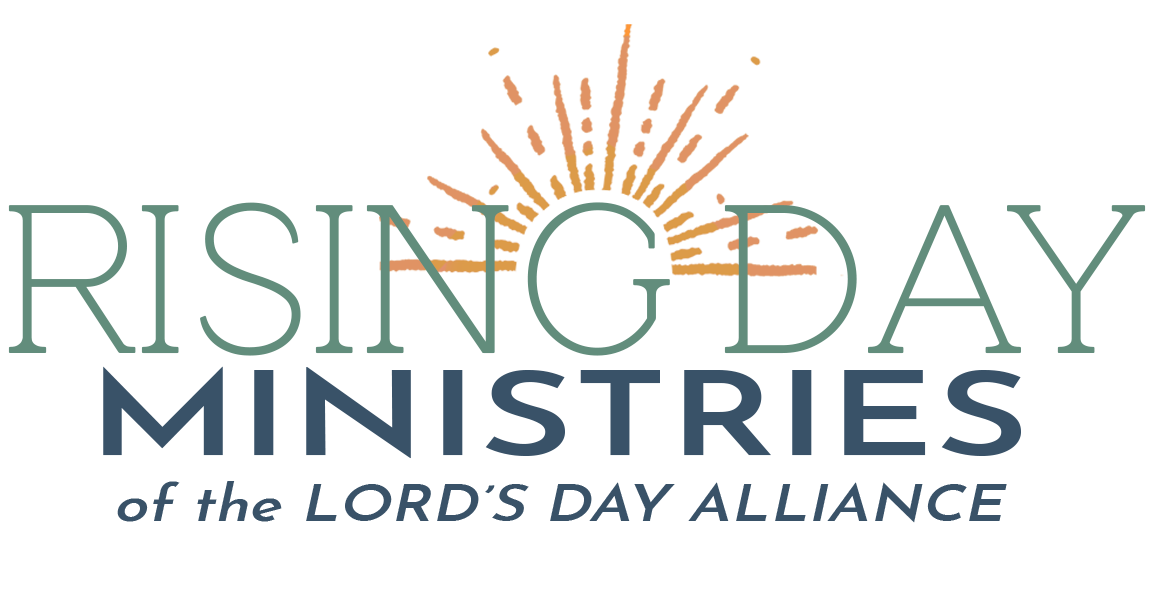Sunday Observance
Emerging from the Pandemic
By Rev. Donald B. Conroy, STL, PhD
As we emerge from the Covid-19 Pandemic, we are still living in a twilight zone of understanding how personally, in our families, in our community and especially in our Sunday worship experience what this long period of isolation, restricted pastoral practice and lack of Sunday congregational sharing have meant.
As we reflect we can observe both negatives and positives as we resume some semblance of normality in how we face the future in the religious community.
In this article I hope to provide your with some helps to not only getting back to an appearance of functionality and pastoral recovery but also actually look at the challenges and make this a moment personally, pastorally and ecumenically to renew the practices of Sabbath-Keeping and observing the Lord’s Day with renewed enthusiasm.
The Negative Impact and Obstacle to Sunday Observance
We all have experiences this difficult period in the past year and a half. Each one of us has his or her own story of how we have navigated and survived the past year and a half of the pandemic. Through faith, prayer and perservance we have learned much from the plague of biblical proportions that has affected our families, our congregations and our call to ministry and service to others in need. These tremendous “roadblocks” to our normal living but these obstacle can be turned through the Providence of God into “stepping stones” vulnerable to a better future.
We have experienced how our Sunday worship was greatly restricted by closing actual worship sites by authorities in the name of public health or by greatly hampering the number and occasions of Sunday prayer and worship. This affected both old and young. Our elderly, who were particularly vulnerable to the Covid-19 infection and its deadly effects felt the isolation from family and communal gatherings and often suffered in silence at home or in care facilities.
The young, especially young families, felt the lack of support in preaching, teaching and praying together with the congregation. Grandchildren and grandparents were separated from one another with the inability to simply celebrate family Sunday meals or gave regular sustaining and healthy relations.
These adults in the middle often lost their jobs or felt the economic crunch to get on with life and careers. Young adults both unmarried and in their early vulnerable years had to cope with unusual circumstances in which to proceed with church connections and bible study among other supporting activities.
All in all, it was a difficult time and its effects often remain until the present.
Where do we begin our recovery efforts?
One thing many congregations have developed over the past year is their on-line Video capability to live-stream worship on Sunday and to do mid-week Scripture Study in small Zoom groups. Mid-week home and family Scripture preparation for the upcoming Sunday readings is a way of helping families and others to prepare for a more meaningful Sunday experience. Also, sick, home-bound and elderly can still maintain connection with Sunday worship with new follow-up home visits from the parish or local church members and clergy. This builds upon the experience of the past year. In addition, we can now work in evangelizing the un-churched in new multi-media ways while we add on new monthly (or weekly) youth, young family and grandparenting meetings at the actual church facilities.
Since grandparents have greatly missed their own grandchildren, churches can start up new ways to get inter-generational involvement and participation in Sunday Observance activities including actual attendance as an intergenerational family followed by Sunday brunch and helping visits. Having a new Grandmothers Corps take on these kinds of actions can spark-plug Sunday worship and renewed inter-generational activities that will become a new ritual or custom. (See the book “Grandparents Are Forever” by Dr Carolyn M. Gutowski on exciting roles for grandparents and grand persons like aunts, uncles and God-parents.)
New Ministries for a New Era
To get a jump start on not only getting back to actual Sunday attendance but also creative ways the congregation can begin new practical and empowering ministries, institute an ad Hoc time-conditioned two-year Post-Pandemic Sunday Family Worship and Participation Initiative with an action team made up of leaders from the Worship Staff, the Ushers Club, Financial Committee, the Sunday School Principal and a new Multi-Media expert. They can explore with the entire pastoral team creative recovery efforts.
This select team/committee can lay out a renewing, post-pandemic Vision and Strategy for a two-year period. This can be funded by a special collection or donations with a special charter. This team can be empowered to draw up a New Post-Pandemic Recovery and Congregational/Parish Plan. With a time frame that will prod members and staff to put priority emphasis on this task much can get dome in a short time.
Furthermore, now is the time to launch a new evangelization and Sunday action effort. With new energy design a new handout/brochure for home visits and a newly designed website to engage youth, young couples and families. Unless something is done the recovery time will lengthen and the momentum will be lost. Also, check with the music ministry and youth ministry directors for their input and how they suggest announcing the Good News for the 2020’s. (See the well-done volume entitled “Sundays, Sabbath and the Weekend” edited by Dr. Rodney Petersen et alii for fresh ideas like how Caring for Creation and Environmental Ministry tie in with Sundays.)
This a moment of also unprecedented opportunity if correctly approached. Through the centuries the Jewish and Christian communities have bounced back after the set-backs of famine, plague and war. Viewed with imagination and prayer to the Renewing Spirit, sent by the Risen Lord on Pentecost and throughout the past two thousand years, we can not only recover but also leap ahead in our promotion of Sunday as the Lord’s Day and our keeping prayerful Sabbath Observance.

